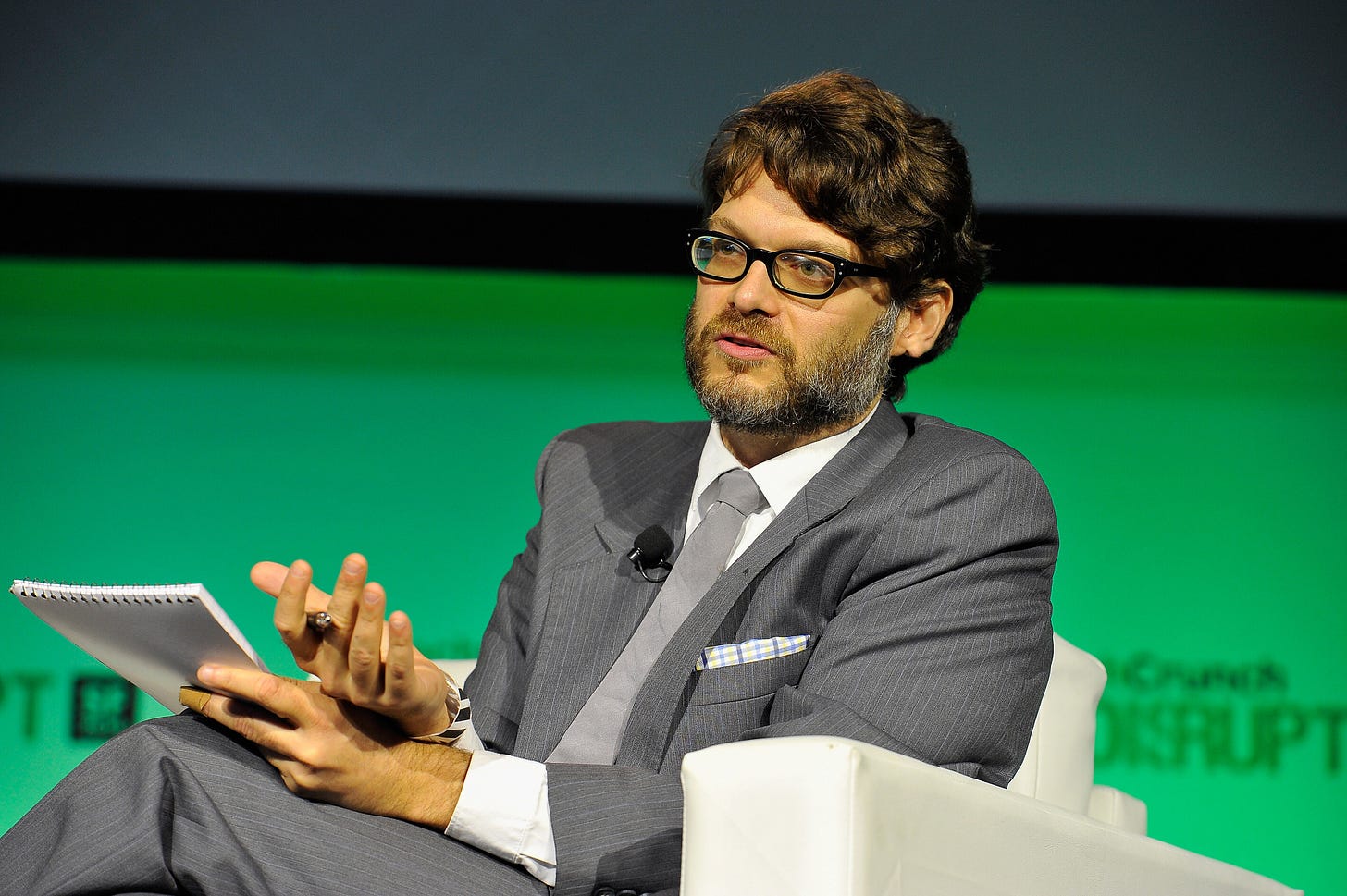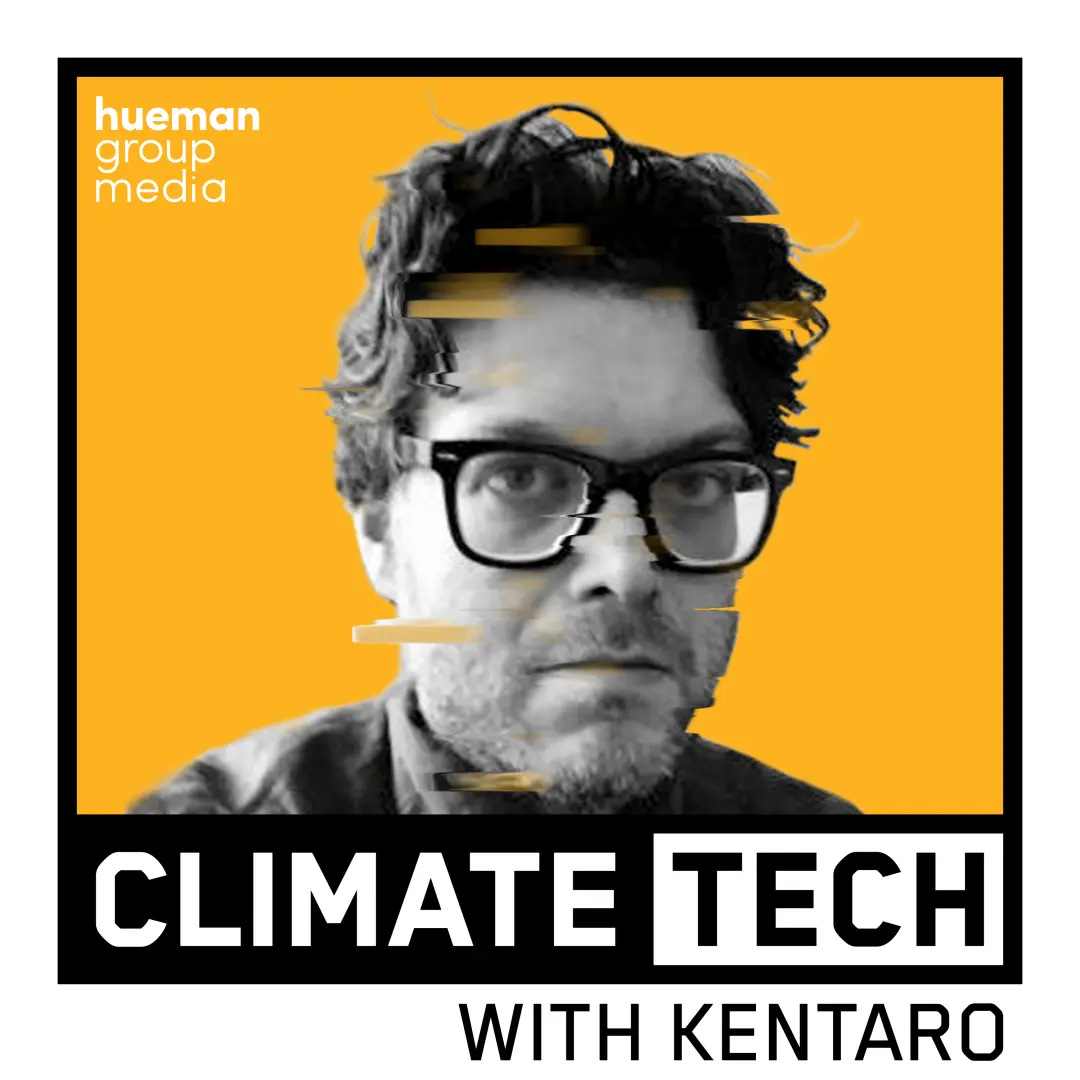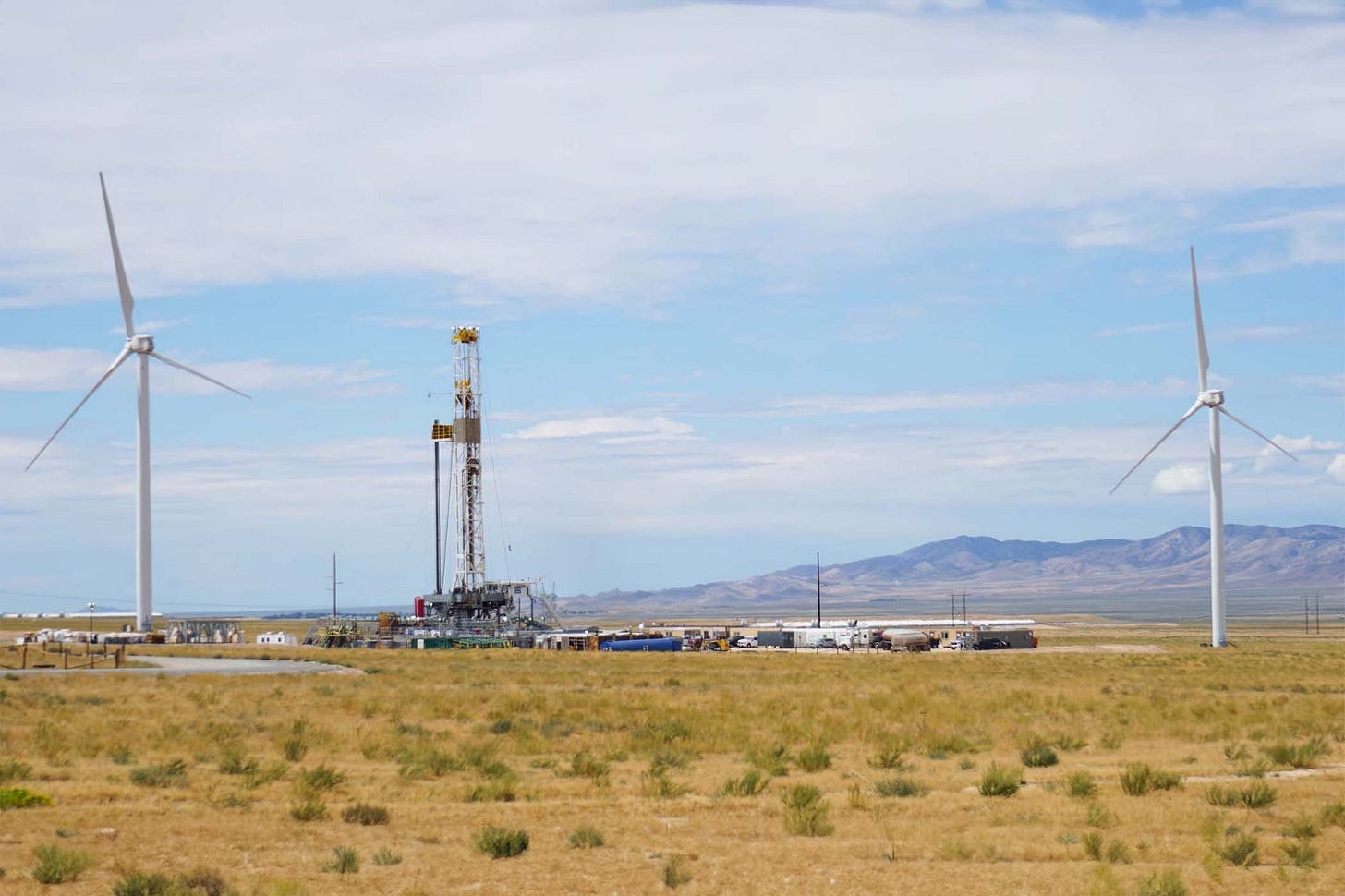The role of capital in climate storytelling with Jonathan Shieber
Reporter-turned-venture partner and climate tech storyteller Jonathan Shieber shares his unique POV on the role of capital in accelerating the energy transition.
Climate tech investment has cooled over the first half of 2024, as many investors take a “wait and see approach” with U.S. elections looming. For people working in climate tech, this financial uncertainty can be challenging to manage.
Given the uncertain state of climate tech investment, we can think of no one more knowledgeable than Jonathan Shieber to discuss where things are heading, and the role of capital in financing the energy transition generally. He had a front-row seat during the cleantech 1.0 boom and bust as a private equity and venture capital reporter for Dow Jones, The Wall Street Journal and TechCrunch. He then transitioned to investing as the climate tech 2.0 boom got underway as a venture partner and editor for Robert Downey Jr.’s FootPrint Coalition.
Shieber says storytelling is a key lever for climate tech companies to emphasize in their go-to-market strategies. In our conversation, he shared some concrete tips and learnings from his experience, as well as some thoughts on the current state of climate media, and more.
How does your journalism background inform how you think about storytelling and marketing?
Well, the importance of storytelling in almost any industry can't be overstated. It's often not who has the best technology that wins, but sometimes who has the most compelling story. Of course, everything needs to be undergirded by real facts about the value that a business can present. But in the early stages, especially when you're talking about early-stage tech companies, that value isn't necessarily completely readily understandable by the market. Often, you have to rely on the storytelling acumen and ability of people who are supporting the business from that narrative perspective to craft something that is compelling to the market and can be the tip of the spear in the ways in which you sell, in the ways in which you communicate to investors, in the ways in which you communicate to potential hires. It's important to recognize this as early as possible so that you can be in the best position to succeed in a competitive landscape.
But in the early stages, especially when you're talking about early-stage tech companies...you have to rely on the storytelling acumen and ability of people who are supporting the business from that narrative perspective to craft something that is compelling to the market and can be the tip of the spear in the ways in which you sell, in the ways in which you communicate to investors, in the ways in which you communicate to potential hires.
What are some fundamental things climate tech companies need to consider when telling their story? There are a lot of different audiences that matter. What are some core storytelling attributes you would point to?
The first thing is to start with what the business actually needs. What's most pressing from a business case? That should guide you to the story that you need to tell most. Whether that's staffing, whether that's raising additional capital, whether that's talking to the market and acquiring customers. Whatever those business needs are informs and shapes the story you want to tell. It's important to ground all of that in effective communication about the solutions that you're bringing to the market.
With climate, you can capture the imagination of the fact that these are positive steps that the world needs to be taking for better planetary and human health. These are not incremental advances in the efficiency of a marketing platform or a better-optimized customer relationship management system. These are fundamental innovations that will impact the ways that people live for decades to come. These are tools that one can employ to create solutions that matter for society as a whole.
You can ground these stories in arcane descriptions of degrees of warming and systemic weather problems, but you can also ground them in real human truths. These are things that will make the air cleaner. These are things that will make water cleaner. These are things that will enable you to have lower-cost food, that will enable you to provide for your family and your loved ones in ways that are resilient and resistant to some of the pressures that we see in the world, from weather-related incidents and whatever else. Grounding those stories in the human truths that they are enabling and protecting is very powerful and something that companies would get more mileage out of.
Grounding those stories in the human truths that they are enabling and protecting is very powerful and something that companies would get more mileage out of.
So I've heard you talk about this before, how covering private equity [for Dow Jones] gave you a unique window into how current energy systems work. What are some surprising things you learned about the world of energy and power infrastructure, the hard tech that is required to make energy systems run? What surprised you about those types of systems and how does that inform how you approach thinking about energy?
The complications of the regulatory obstacles, the social barriers to development, the economic barriers to development. The fact that these innovations require more intricate approaches to navigating stakeholders in a way that an enterprise software company doesn't. Or a consumer services or consumer goods company may not. The innovations matter, the ways in which those innovations can be deployed effectively, quickly, and at scale, in ways that multiple types of capital can support are very, very important.
You're seeing this now. I think one of the oversights that investors made in the first wave of cleantech investment from 2007-2012 was this almost naivete around what it takes to build these things, put steel in the ground, how long it takes, how complicated it actually is, and how many points of failure there are along the way to developing a successful business. There's a lot of bloodletting and lost capital that happened in that period that may have been avoided. Now it's also a little bit unfair to just paint cleantech with that brush, because the first iteration of the Internet bubble in 2000 came with its own massive wave of value destruction, as billions of dollars got wiped out, as people invested in some truly wacky things.
It is venture capital and it is about taking risks, but I think this generation of investors and the companies that are coming up now have more tools and better advisors and supporters around the table. Like the company I'm working for now, Emerald Strategy Group, helps both startups and large industrial companies navigate these challenges to work together and effectively build the kinds of solutions we need to enable decarbonization broadly.
What is the role of capital in scaling the technologies needed to decarbonize? What role do you think finance plays in telling the story of the clean energy transition?
I think that there are multiple layers of capital that all need to be deployed, and you're seeing a lot of that happen now, enabled in part by government funding to support new project development. The first wave of cleantech had a sort of, ‘if you build it, they will come’ mentality. To get to the point where you can build it requires a lot of money from various sources and a lot of assurances from a number of different parties, including the insurance industry. Banks need to be able to lend against this stuff. They don't necessarily have any priors against which to measure the success or viability of these projects. So you need a lot of different kinds of capital to come in at different inflection points or pain points to enable the success of the industry.
I think you're seeing that capital stack evolve and a greater recognition of this need. But there’s also an opportunity for the financial services industry, which rightly or wrongly gets pegged a lot for bad behavior, to underscore and emphasize and maybe put more capital to work in first-of-a-kind projects, even if it's just as a marketing function, to get these things off the ground so that they can be seen as viable. Hopefully, it's a self-fulfilling prophecy and the investments that are enabled as they work become more financeable for projects 3, 4, 5, 6, and 7. But there's still that sort of choke point right now in the market where things are moving from a lab scale to a pilot scale to commercialization. You've seen a few companies leverage things like the [Department of Energy] Loan Programs Office financing and other types of alternative capital to get to that point from pilot to commercial.
The LPO talks about the bridge to bankability and that it's really important for companies to keep that in mind and be able to tell that story in ways that can resonate with investors, with banks, with whoever else.
Switching gears a little bit. After journalism, you took a role as a venture partner at Footprint Coalition. As part of that, you built a media platform to tell stories about innovative climate tech startups. What did that experience teach you about what audiences want to hear as it relates to climate tech and innovation?
I think people want to hear about solutions. There are plenty of narratives being written about the sort of slow tragedy of species annihilation, of increasing frequency and severity of droughts, of wildfires, of floods, of hurricanes, the whole panoply of natural disasters that are accelerated by global warming. People talk about a polycrisis for a reason. Because it's everything, everywhere, all at once. That said, innovators and entrepreneurs and even large industrial companies have tools at their disposal that they are bringing to the market that can help address some of these things. And one of the natural and default tools in the toolbox for a lot of these companies is to say, “We are solving some of the world's most significant problems,” in their storytelling.
We’ve talked to Kip Pastor about being bold and optimistic about the solutions that are being put forward and innovations that are happening. There's a way to connect with people through optimism, which is separate and apart from the science and the disasters that are accelerating around the globe. Bringing that optimistic, solution-oriented work forward can be very powerful when done effectively.
Right. I also think that there are lots of ways to tell stories that can resonate. One is just that hope is fundamental to the application of human ingenuity to really hard problems. If that doesn't resonate, there's also the potential to talk about the biographies of the people who are pitting themselves against these tremendously difficult problems and their own narratives and their stories and how they came to be involved in this. These stories are really interesting and can resonate with certain kinds of audiences. Ideally, these solutions are nonpartisan. Everyone wants cleaner air, everyone wants safe drinking water. Everyone wants good food to eat that doesn't cost a lot of money, so they can put it on the table for their families.
The fact is global warming makes a lot of those things more difficult. Fossil fuels create an incredible amount of air pollution. The chemicals industry creates an incredible amount of water pollution. Finding biological solutions or alternatives should be something that everyone can be in favor of.
The media business is under tremendous pressure. We've seen a number of layoffs of climate reporters specifically at legacy media outlets. Some have eliminated their climate desks. At the same time, there's a new crop of independent media startups like Heatmap, Latitude, Canary, Cipher News [part of Breakthrough Energy] that have emerged to cover climate and energy with a really impressive level of precision and focus. How do you view the current media landscape and its focus on climate solutions, and what do you make of the way the media landscape is evolving as it reports on this very important critical global story?
Well, I think that the media landscape is fragmenting, but you're also seeing opportunities for new platforms to emerge, that can blend a business model with a storytelling or narrative strategy that adds value and tries to be as clear-eyed as they can about the industries that they are operating in and covering. So you look at the good work that some of the analyst platforms like Wood Mackenzie or S&P are doing. The big media outlets [Washington Post, New York Times] are covering climate a lot more aggressively in some cases. The AP and Reuters have expanded their climate desks. So, traditional media is still actively covering this story.
I think the new outlets that have cropped up and the proliferation of voices on places like Substack make it a lot more challenging in some ways for public relations professionals to do their job. As the business fragments into silos where specialized influencers are covering particular areas, that is something that PR firms need to keep track of and be aware of. It also underscores how vitally important trade publications like Latitude Media are.
There are many, many other platforms that people are turning to get the information they want, whether that's aggregators and commentators like Nick van Osdol, or The Cool Down, which is taking a more broad based, consumer approach to climate news, or Heatmap, which is very much a Beltway beast that features Robinson Meyer's incredibly incisive voice. Grist is a media outlet that's been very focused on the activist side of things.
But what you're seeing now is a trend towards these publications waking up to the fact that business isn't necessarily the enemy of the people when it comes to climate solutions and that there's a lot of capital that is now being deployed into these solutions. I would maybe argue that some of these outlets that have been considered not relevant to a startup company become even more relevant, as they want to get out into communities where they need to convince environmentalists that these projects need to get built and that the work that they're doing needs to happen, and these conversations can't be as siloed as they once were.
What are you keeping your eye on moving forward? What makes you optimistic?
There is an underappreciated opportunity to engage in bipartisan support for zero emission energy technologies that don't come from countries that we are competing with on the global stage. No one has won next generation geothermal as a technology to export globally. I think the U.S. is uniquely positioned to do this. I am incredibly encouraged to see real nuclear policy come from Congress with bipartisan support, that's trying to pave the way for this industry, which needs government support in order to succeed. Seeing people put their heads down and really try to come up with policies that support decarbonization solutions is great. In addition, I'm also kind of heartened by the sort of naked greed that people are expressing about making a bunch of money by building and investing in climate solutions because it's capitalism and people are motivated by financial success.
That's the argument Akshat Rathi is making in his book, Can Capitalism Save the World? So there is an argument to be made in that favor. It's a really interesting one.
I think the simple fact is that the U.S. either creates industrial policies and continues to aggressively build out zero emission manufacturing capacity, or we get left behind on the global stage. The future increasingly is not fossil fuels. Most people realize that, and while fossil fuels will have a role to play in the economy for maybe far too long going forward, the plan is to phase them out. The impacts of not phasing them out are becoming more and more apparent.
Over a billion people just suffered through a global heat wave. I try not to talk about negative things in storytelling, but the fact of the matter is these are pressing problems that will only get potentially exponentially worse if we do not address this climate crisis effectively. So, what am I hopeful about? We're still humans. We still create things. We're still pretty clever when it comes to adapting to environments. It'd be nice to live in a world of radical abundance, and I still believe that innovators and entrepreneurs and people can create that.
(Water) Cooler Talk
🧑🎓 Collegiate climate action
Earlier this week, students from across the U.S. and around the world gathered at Harvard University for a week-long summit to delve into issues around climate change, equity and public health. The Harvard Chan C-CHANGE Youth Summit offered students tools for addressing climate change in their communities—including lessons on climate communications. To help foster an already climate-savvy generation, colleges are increasingly offering programs to foster learning and growth in this area such as specialized degrees.
🥇Climate change at the Olympics
Climate change has been top-of-mind at the 2024 Paris Olympics. The organizers set a goal to halve emissions from previous Olympic Games, using strategies such as low-carbon building materials, renewable energy sources and carbon offsets. The summer sporting tradition is also heavily dependent on weather—and climate change’s impact has been felt this week. The heat wave across the country sent temperatures above 97°F, challenging athletes and spectators alike to find ways to cool off in a country where air conditioning is much less common than in the U.S. This year’s heavy rainfall has created poor conditions in the Seine river, causing delays to the men’s triathlon on Tuesday. Experts called the decision to host the swimming portion of that event in the Seine a gamble against climate change.
🌎 Today (August 1) is Earth Overshoot Day
Earth Overshoot Day is the day—calculated by the Global Footprint Network, an international research organization that provides decision-makers with tools to help the human economy operate within Earth’s ecological limits—we have used up all the natural resources our planet can generate for the year. From here on out, we are taxing Earth’s resources. The calculation reminds us of the planet’s limits and how our actions are pushing the Earth into biosphere destruction. Although this day can bring existential dread, the Global Footprint Network highlights a number of ways we can improve our resource security through the power of possibility to #movethedate.








